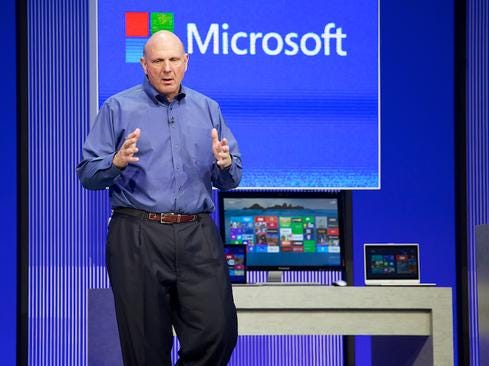Microsoft's Open Compute Move: Just Good PR?
The disruptive power of Microsoft's Open Compute Group move has spurred debate. Let's talk image versus cold hard revenues.


Microsoft In 2013: 7 Lessons Learned
Microsoft In 2013: 7 Lessons Learned (click image for larger view and for slideshow)
Microsoft surprised the tech industry Tuesday when it joined the open-source hardware movement, announcing at the Open Compute Summit in San Jose that it would offer the Open Compute Project (OCP) specifications used in Microsoft datacenters as well as code for server management software.
Microsoft's participation speaks to the changing trajectory of the datacenter. In a report released last week called "Predictions for 2014: Private Cloud Management and Infrastructure," the research firm Forrester forecast the proliferation of OCP-compliant and other low-cost, open-source commodity servers.
At least one expert, however, isn't convinced Microsoft's participation is a clear game-changer. "It's interesting," said Gartner VP Jeffrey Hewitt in a phone interview. "But it probably won't be a massive thing."
[For more on Microsoft's move to open source, see Microsoft Makes Azure Server Design Open-Source.]
Hewitt said Microsoft's interest in OCP could yield benefits, but is likely more exploratory at this point. He noted that the web companies that use OCP-compliant tech are typically committed to Linux, which makes a shift to Microsoft's comparatively byzantine OS licensing models a tough sell.
So what's in it for Microsoft? One perk is validation in the open-source community, said Hewitt. He also pointed out that Microsoft should gain from OCP's collaborative nature.
"OCP was fundamentally an effort to disrupt things," he said, explaining that Facebook founded the project because IT is a core part of its business, which means every IT dollar saved translates directly to the company's bottom line.
By eschewing expensive OEM servers in favor of customized designs built with cheap commodity components, Facebook has been able to improve efficiency while reducing costs. The company advanced this concept with OCP, arguing that crowdsourced development would drive the creation of low-cost, highly efficient hardware. The collaboration offers two theoretical benefits: improved technology, and increased demand for OCP-compliant servers that should push the cost of commodity components even lower.
The project has attracted formidable supporters, including chipmaker Intel and investment banking firm Goldman Sachs. "Now isn't a bad time for Microsoft to say, 'We're going to be a participant,'" Hewitt said.
Plus, by sharing designs used to support its Azure datacenters, Microsoft could not only drive down its own infrastructure costs, but also persuade at least some businesses and cloud providers to build out designs based on Windows technology. "It's all kind of intertwined," said Hewitt.
Still, Hewitt doesn't expect Microsoft to see an immediate revenue bump from its OCP involvement. For one thing, the project's emphases aren't for everybody, he said. Open-source datacenters are popular among web companies but less widely adopted elsewhere, he explained, because they require a certain amount of expertise to implement and certain conditions to make them cost-effective and efficient.
Hewitt said Microsoft's OCP participation could negatively impact the company's relationship with server OEMs -- but he doubts it. "Certain customers want support and don't mind paying a software license," he said. "[These customers are] different than someone who might write their own code and work on open source."
For now, Hewitt said, Microsoft faces little risk in supporting OCP, but it could benefit from the chance to declare, "We are in this game, not running away from it."
Michael Endler joined InformationWeek as an associate editor in 2012. He graduated from Stanford in 2005 and previously worked in talent representation, as a freelance copywriter and photojournalist, and as a teacher.
Incidents of mobile malware are way up, researchers say, and 78% of respondents worry about lost or stolen devices. But though many teams are taking mobile security more seriously, 42% still skip scanning completely, and just 39% have MDM systems in place. Find out more in the State Of Mobile Security report (free registration required).
About the Author
You May Also Like






